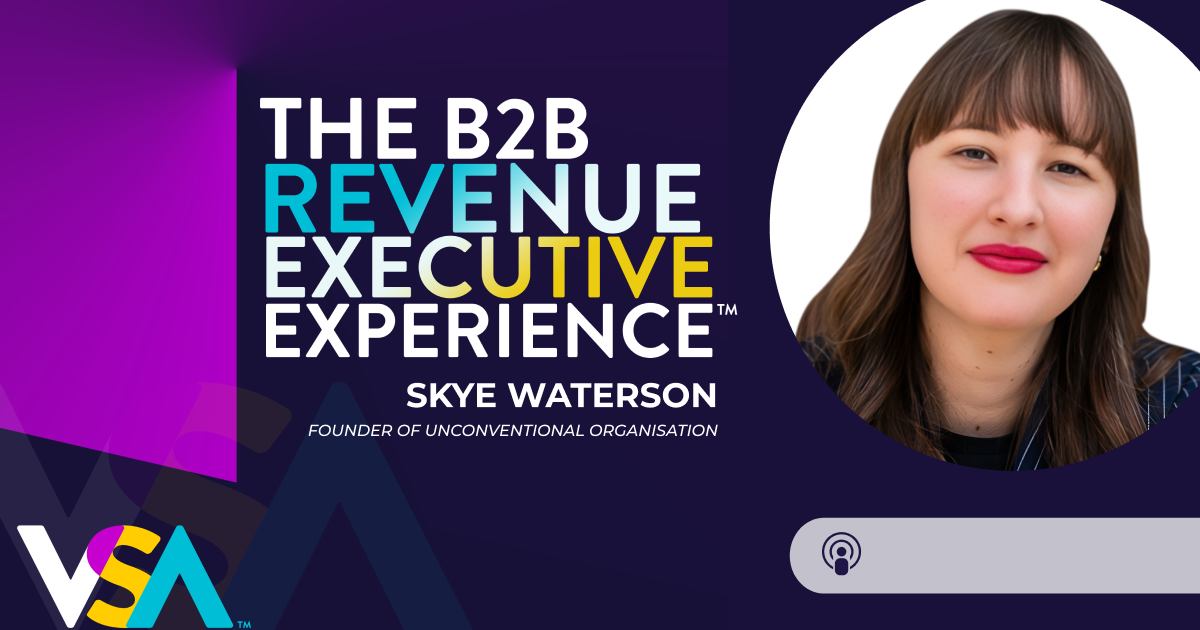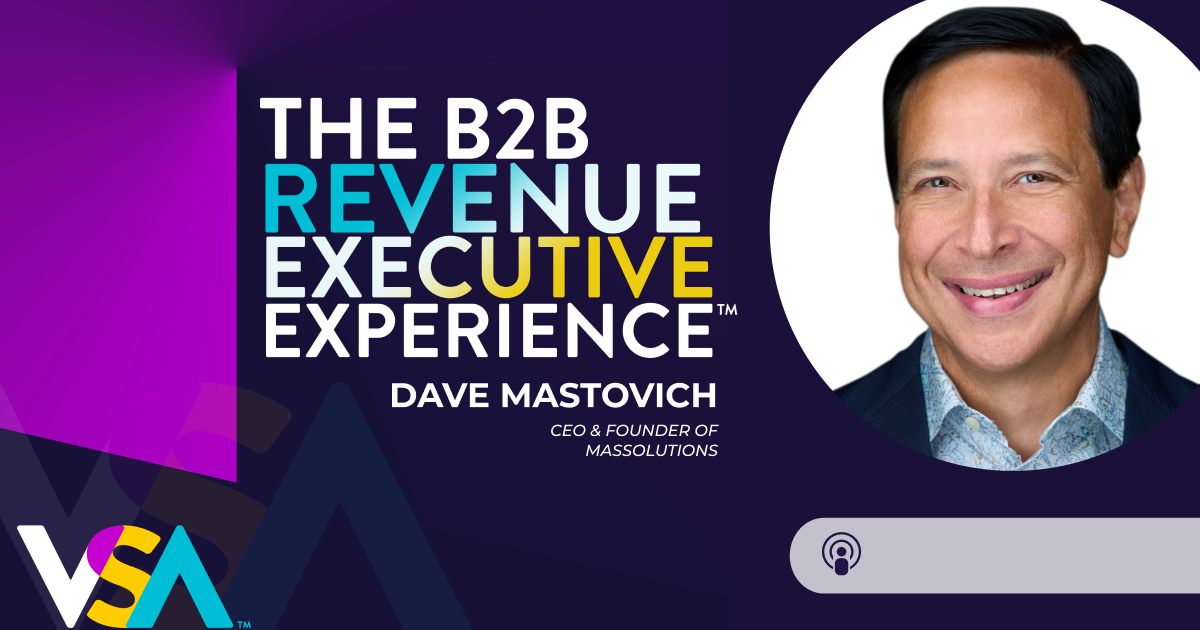The Theory of Mind is More Effective Than Empathy in Sales – Here’s Why

Empathy in sales has become a popular topic in recent years.
Yes, it’s good to understand the emotional state-of-mind your prospect is coming from. It’s also useful to realize how their situation and challenges are affecting their decision-making.
However, empathy may not always be the most effective route to take.
In the latest episode of the B2B Revenue Executive Experience, I sat down with Nicolas Vandenberghe, Co-founder and CEO of Chili Piper.
He shares his thoughts on neuroeconomics and how the theory of mind can actually be more beneficial in B2B sales than empathy.
Why we value empathy in sales
Empathy is a skill that sales coaches often teach new reps to develop in order to close more deals. The reasoning being that if the prospect feels their needs are being recognized, they’ll be more apt to sign on.
Many sales professionals feel that if empathy is lacking, a salesperson won’t be able to influence prospects. Without empathy, the rep won’t appear understanding or concerned with the prospect’s challenges.
Nicolas has chosen to challenge this all-too-common logic.
Empathy is defined as the ability to understand and share the feelings of another. This would mean, in essence, that the sales rep not only understands the feelings of the prospect but actually shares them.
Don’t share the emotions – read them
Nicolas advises sales reps to explore the theory of mind notion as opposed to empathy. Theory of mind (ToM) is the ability to differentiate between your mind and the mind of another.
“You don’t need to feel sad to understand when people feel sad. You don’t need to feel happy to understand
when people feel happy.”
NICOLAS VANDENBERGHE, Co-founder and CEO of Chili Piper
While empathy is the tendency to mirror someone’s emotions, ToM allows you to interpret someone’s emotional state and – in turn – predict their behaviors. Also known as “mentalizing,” ToM helps you “make attributions about the mental states (desires, beliefs, intentions) of others.”
Nicolas points out that a good sales rep doesn’t need to experience the prospect’s emotions, they simply need to know how to read them. Contrary to popular belief, Nicolas actually sees empathy being detrimental to B2B sales.
As a sales rep, if you’re prone to imitating your prospect’s emotions, it could result in a hostile phone call or chain of emails. Say a potential buyer is in a foul mood at the time you have a scheduled call. In the spirit of empathizing with this prospect, are you too going to engage in a negative manner?
When you boil down the true definition of empathy, it’s clear that the idea of empathy in sales is not all that effective.
Doing discovery differently
Oftentimes during discovery calls, we tend to stick to logistical questions. Nicolas, however, encourages emotionally qualifying a lead with deeper, more emotion-based questions.
In all honesty, it can be awkward trying to uncover someone’s true motives and feelings. Nevertheless, to truly leverage ToM, you absolutely need to get to the motives and emotions behind a prospect’s behaviors. It’s the only way to have a good idea of what their next move will be and how you can help lead them in the right direction.
Here are some questions to try out in your next discovery meeting:
- What prompted you to explore our solution?
- How long have you been looking for a solution?
- What’s your current process?
- What would happen if you didn’t take any action and kept the process you have now?
- What’s the one thing you want most from a solution?
- How does choosing the right solution impact you personally?
- How do you normally go about making a decision like this?
- Can you see achieving your goals with this solution?
- What do you think your CEO will think of this solution?
“The discovery part of the sale is the most critical part.”
NICOLAS VANDENBERGHE, Co-founder and CEO of Chili Piper
Note that these questions are all part of emotionally qualifying a lead. If it’s clear that their needs are not aligning with your services, it’s likely they’re not a good match.
By adding an emotional discovery phase to your sales role-play training, you could potentially see your reps’ conversion rates jump from 5% to 30%, as Nicolas’ team did.
Using micro-theories
Another tip Nicolas shares with us is Chili Piper’s method of micro-theories. He describes micro-theories as succinct narratives reps can piece together through research and interacting with their prospects.
Not unlike buyer personas, micro-theories are clues that reps can use to personalize their outreach sequences. By doing some simple investigating, reps can find organizational events to leverage.
For instance, take a sales rep at a recruiting company. She finds out through research that a big marketing agency has just let go of their CTO. She then can use this piece of information to develop a micro-theory that she’ll include in her promptly-timed outreach email to the agency.
The message could read something like:
“I’m sorry to see you had to part ways with your CTO. I imagine it’s very challenging to carry on day-to-day operations while that position is empty. It’s also probably difficult to plan for next quarter’s goals and objectives. Let me know if I can be of any help to your team.”
Notice how micro-theories use ToM to help the rep predict the prospect’s future behavior.
Empathy vs. the theory of mind
Although empathy has largely been adopted as a required skill in B2B sales, it’s really the theory of mind that closes deals.
By effectively interpreting a prospect’s emotional state (and not sharing their emotions), your sales reps’ conversion rates are sure to rise dramatically.
This post includes highlights of our podcast interview with Nicolas Vandenberghe – the Co-founder and CEO of Chili Piper. To hear this episode and many more like it, subscribe to B2B Revenue Executive Experience here.
If you don’t use iTunes, you can find all our episodes here.
Explore More









